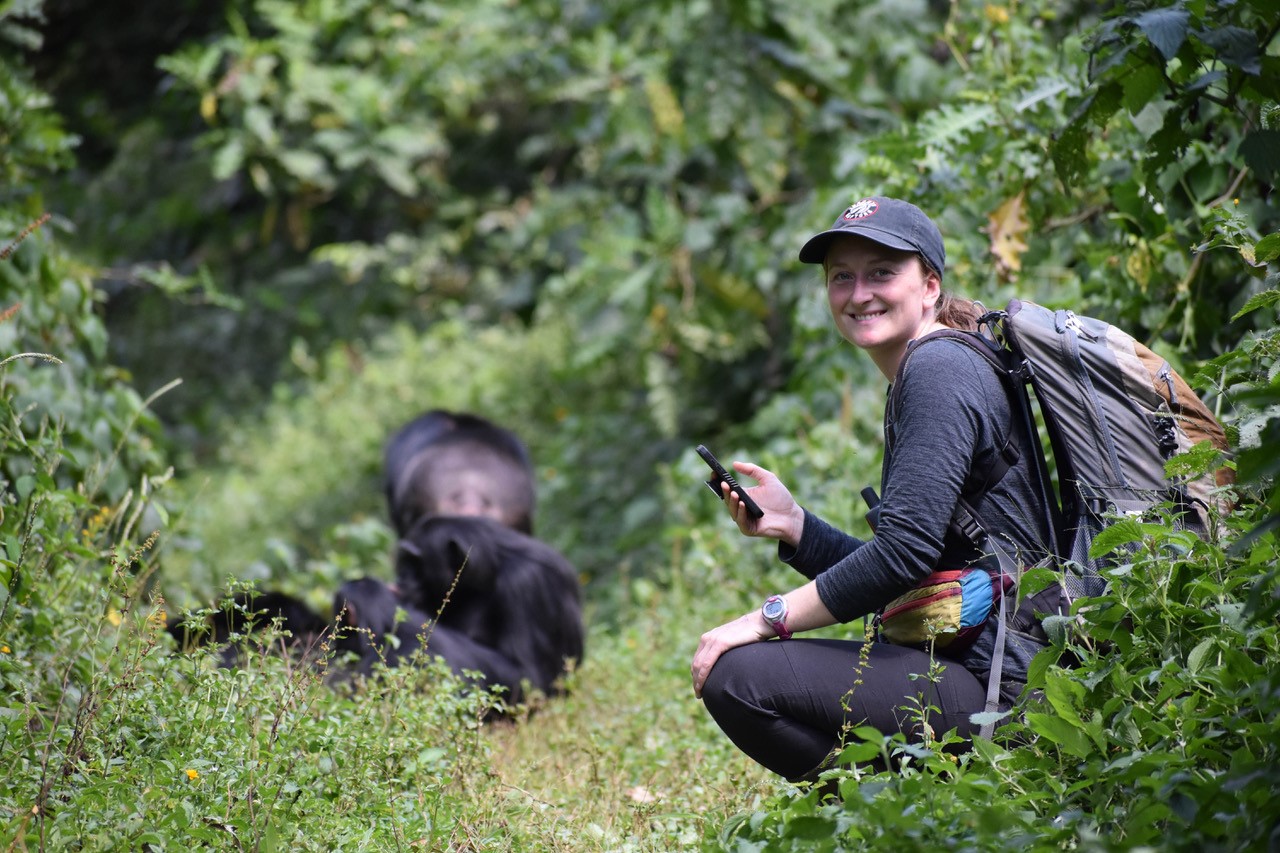Stephanie Fox Receives Outstanding Student Paper Presentation at the American Association of Biological Anthropologists' Meeting
Departmental News
Posted: Mar 31, 2022 - 12:00pm

Stephanie Fox has received the Outstanding Student Paper Presentation at the American Association of Biological Anthropologists' Meeting in Denver for her paper Social relationship quality predicts coalition formation among adult female chimpanzees at Kanyawara, Kibale National Park, Uganda, co authored with Martin Muller, Nicole Thompson González, Drew K. Enigk, Zarin P. Machanda, Emily Otali, Richard W. Wrangham, and Melissa Emery Thompson.
Abstract:
Understanding the different ways that social processes influence cooperation is important for understanding the evolution of cooperation in humans. In several social mammals, including male chimpanzees and many female philopatric primates, individuals leverage strong, affiliative social relationships and relationships with kin to form cooperative coalitions to compete for resources and status. On the other hand, in some animals, individuals cooperate with each other opportunistically, such as female bonobos who form cooperative coalitions with available partners regardless of their shared relationship. However, we know relatively little about the extent to which weak social ties can support cooperation in non-human social animals, although we definitely see this behaviour in humans. In this study, we ask whether weak ties can support cooperation among unrelated adult female chimpanzees. Female chimpanzees are a good model organism for this question because they often have weak, but differentiated, social ties characterized by infrequent affiliation and they occasionally cooperate to form coalitions (joint aggressive attacks or threats, including joint aggressive displays). We examined ten years (2010-2019) of behavioural data on 26 adult female chimpanzees (Pan troglodytes schweinfurthii) in Kibale National Park, Uganda. We observed 128 coalitions. During biennial periods, females formed more coalitions with partners that they had groomed during the period. Additionally, we examined each coalition and found that females were more likely to choose coalition partners who they had spent more time with compared to the other females available in the group at that time. While most females in our study were unrelated to each other, those few dyads who related did not form more coalitions with each other than expected considering how strong their relationships were, indicating that kinship does not bolster cooperation. Our result indicate that female chimpanzees can leverage weak social ties for cooperation, which is a distinct path to cooperation compared to their male counterparts or female philopatric primates. This highlights the diversity of ways that social processes can shape cooperation and further opens the door for us to ask about the different circumstances that can lead to the evolution of cooperation.
.
